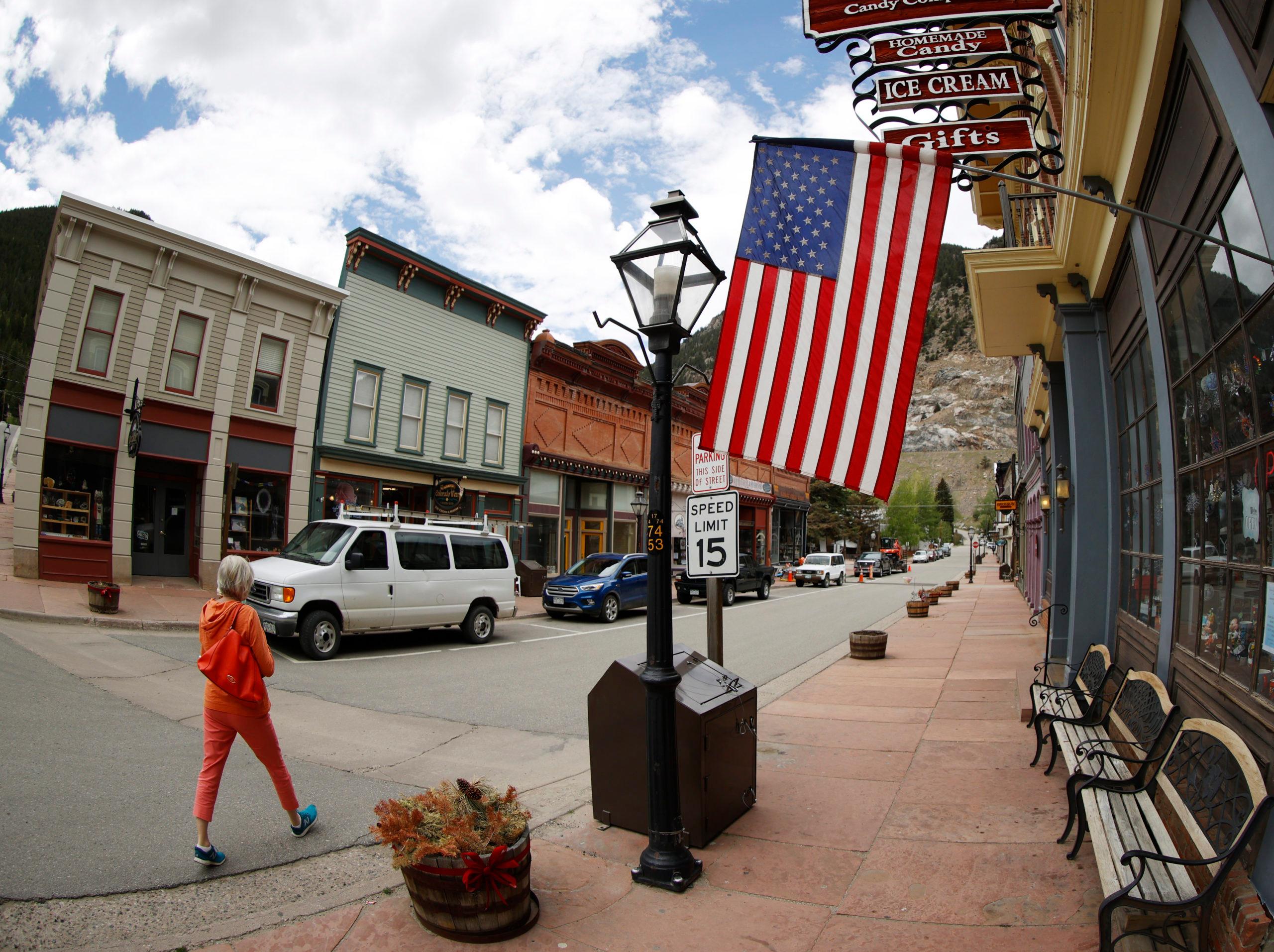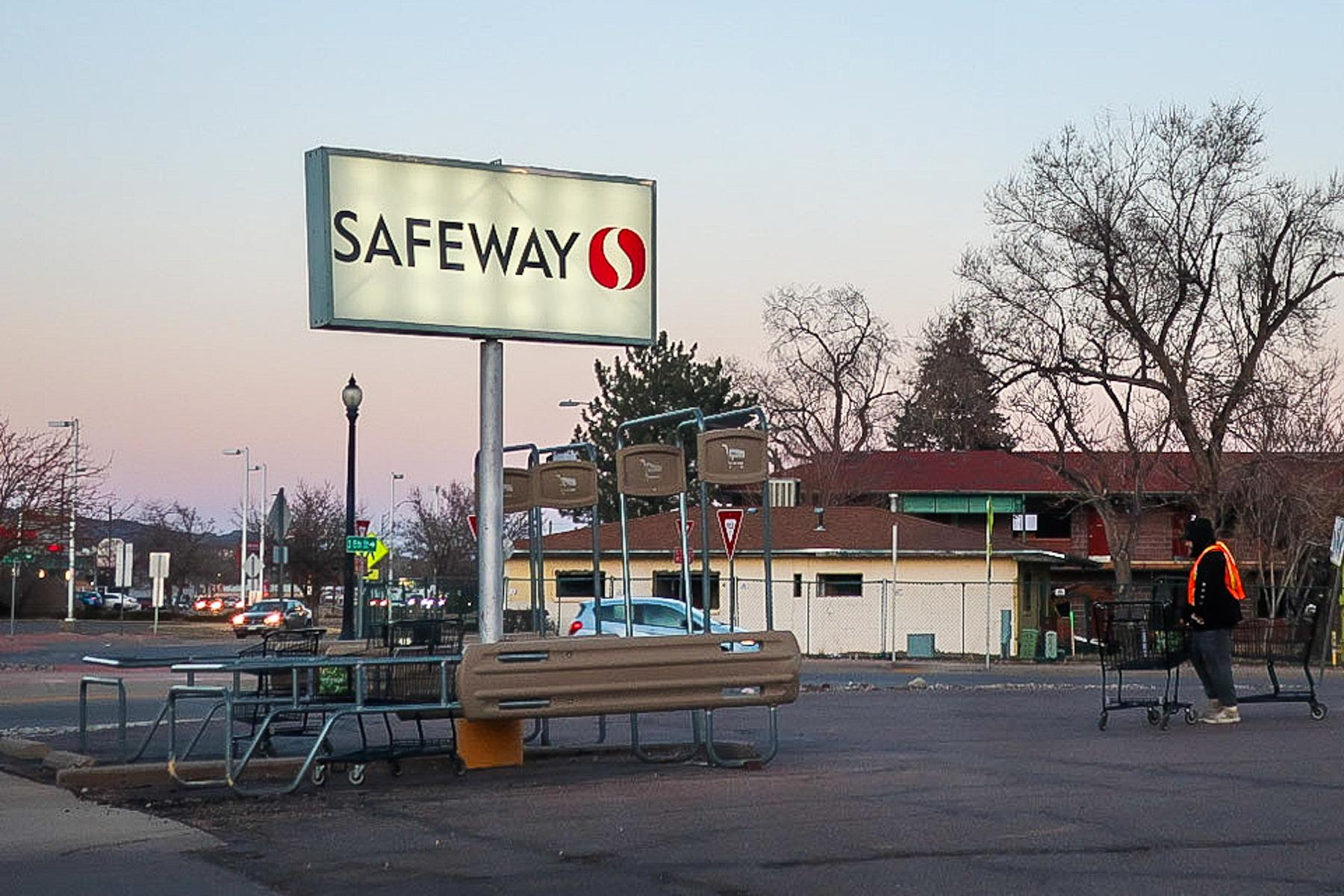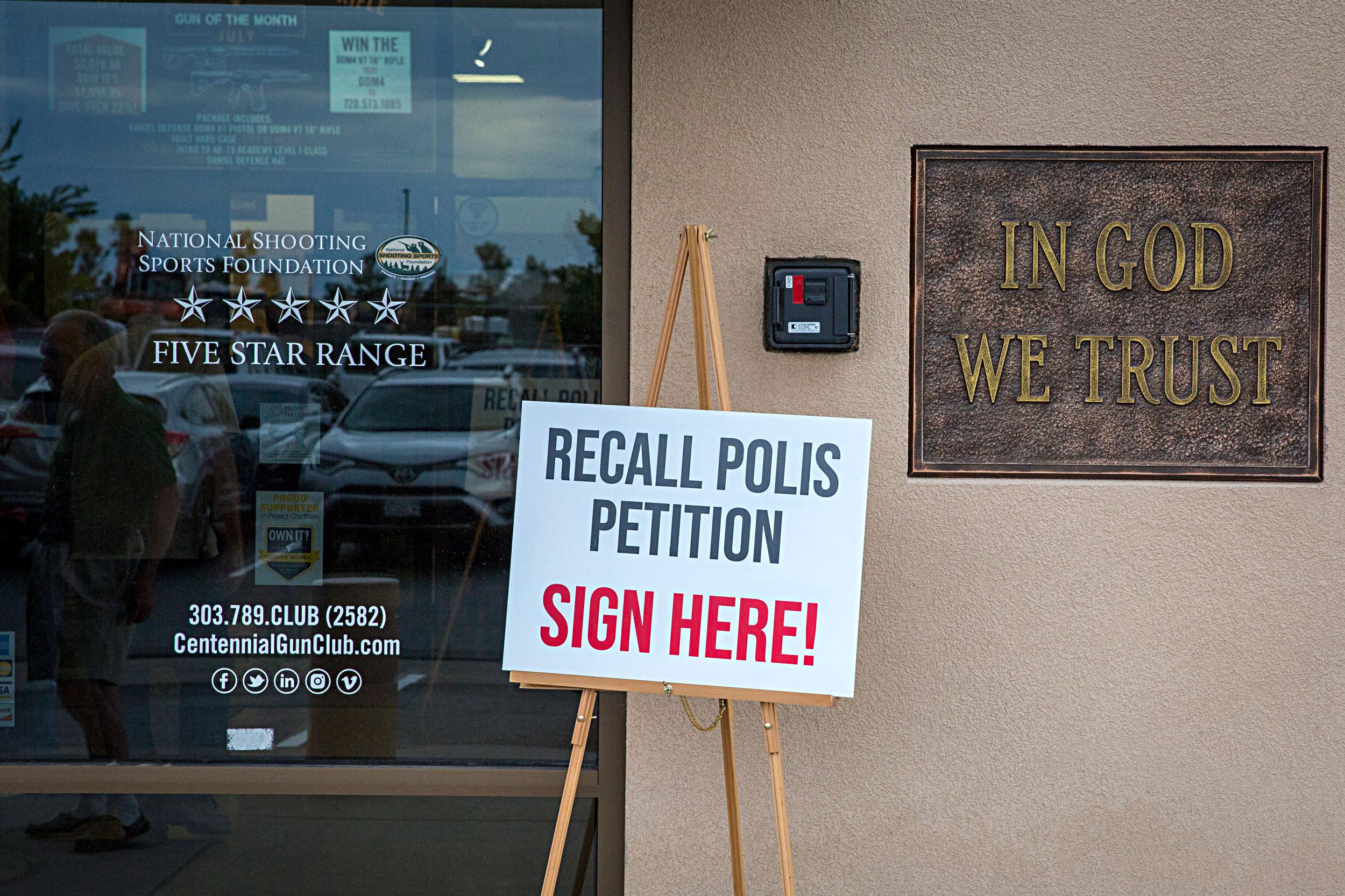
Conservative activists have taken to cafes, fairgrounds and rodeos across Colorado to gather enough signatures to ask voters a simple question: Should Democratic Gov. Jared Polis be recalled? The attempt has divided the GOP, yet some see a recall as their only option right now.
“I’m just extremely disappointed in Jared Polis,” said Kathy Abrams of Englewood as she walked up to a recall Polis petition table just outside of the Centennial Gun Club.
Abrams cited the new so-called “red flag” gun law as her main reason to oust the governor. The Democratic majority in the statehouse passed the bill at the beginning of April and Polis signed it nearly two weeks later. The measure allows courts to temporarily remove firearms from people deemed a danger to themselves or others. Opponents believe it violates the 2nd Amendment and is ripe for abuse.
Abrams is also unhappy that the Democrats passed stricter oil and gas regulations and a new law that would tie Colorado’s electoral college votes to the winner of the National Popular Vote.
“He had the legislature behind him and — bam — they just rolled us,” she said. “One after the other after the other. He does anything but bring people together. It’s his way or the highway. He’s going to keep doing it to us for as long as he can.”
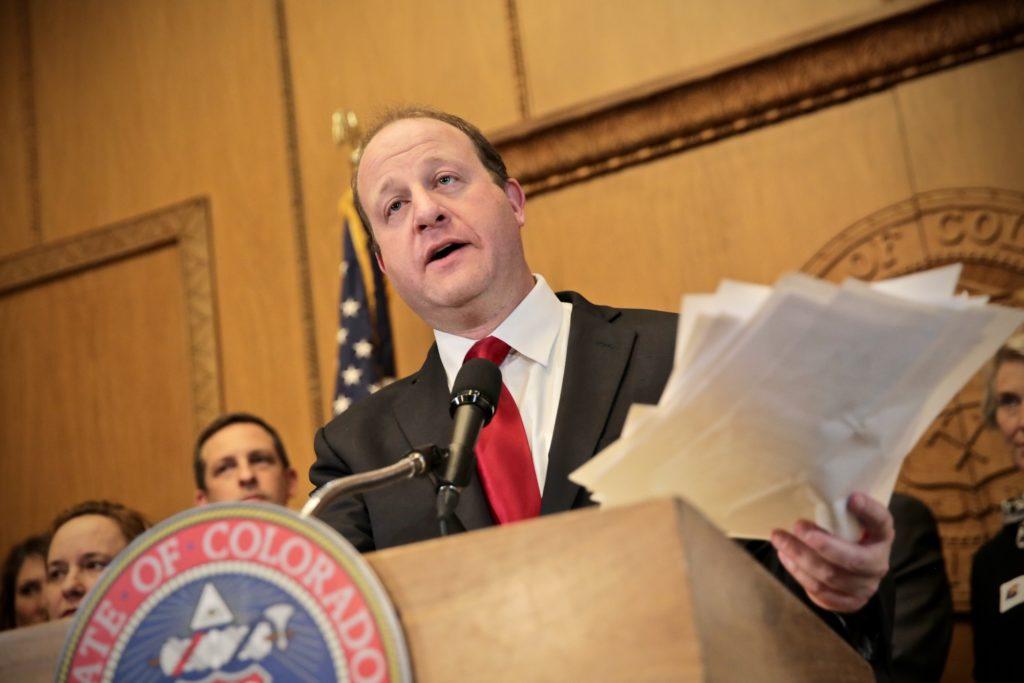
Until recent years, recalls have rarely been used as a political tactic to flip legislative seats or target governors over policy disagreements, said Jason Spivak, who tracks recalls nationwide and is a senior fellow at Wagner College in New York.
"Voters in general see this as not playing by the rules," he said.
To be sure, Democrats also have used recalls, most notably in Wisconsin, where they failed to oust then-Republican Gov. Scott Walker in 2012 over his actions to weaken public sector unions. Walker then was reelected.
But Republicans have mounted recall efforts against Democratic state lawmakers and governors at an unprecedented rate over the past two years in a handful of Western states where, at the same time, their political fortunes have declined.
Getting a recall question on the ballot in Colorado is a huge uphill climb that requires 631,000 valid signatures just for Polis. Groups are also gathering signatures against Democratic state Sens. Brittany Pettersen of Lakewood and Pete Lee of Colorado Springs. The recall wave included brief efforts against two House members too.
Earlier this year, Congressman Ken Buck, the Republican State Party Chair, told members they were going to teach Democrats how to spell recall. He also recently told CPR the party isn’t driving this.
“It’s not as if a group of people got together in a room and said ‘OK, you go after Polis, and you go after [Rep. Tom] Sullivan and you go after this person.’ It’s not a strategy as much as it is a grassroots effort that shows frustration,” Buck said.
The campaign to recall Sullivan earned criticism across the political spectrum. Many noted that he’d only fulfilled a campaign promise and was up for reelection in 2020 anyway.
“I didn’t start that and there was nothing that the state party got involved in,” Buck said. “I have certainly heard the argument that it’s second guessing the will of the voters after an election. At this point, I don’t have any idea how credible that is.”
The party ties are hard to miss though. The vice-chair of the Colorado Republicans initiated the short-lived recall against Sullivan.
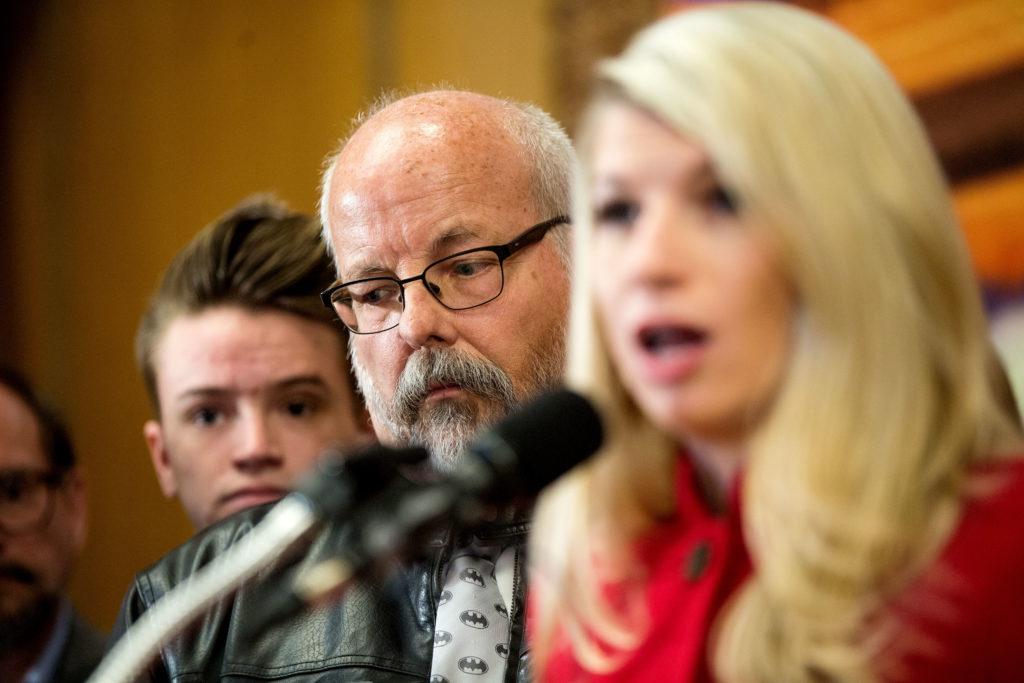
“I think that just speaks to the current situation within the Republican Party and the conservative movement where there's not any agreement and there's no unity behind what they're doing and people are pulling in 15 different directions from the same center and going nowhere,” said attorney Mario Nicolais, who has long been involved in Republican circles but is now unaffiliated.
Nicolais said all of these efforts have drained energy “that could be used to go out and to lay the groundwork for [Sen. Cory Gardner] in 2020.” The Republican is widely considered to be vulnerable and Nicolais thinks the recalls are energizing the Democratic base. In an attempt to tap that, Gov. Polis is already using the recall as a catalyst to raise money.
“This is frankly more energy and activism than we would normally see in an odd [election] year,” said Democratic State Party Chair Morgan Carroll. “And it's also brought in some new people who haven't been involved before, but frankly are so disgusted at just a transparent abuse of process that they're like, I'm getting involved.”
Carroll said recall organizers aren’t running sophisticated operations, yet Democrats have not taken the threat lightly. In 2013, two Democratic state senators were successfully ousted from office. As it stands now, the party only has a slim advantage in the Senate.
“We are not underestimating these because they only need to flip two seats to flip the majority and overthrow basically most of the results of the 2018 election,” she noted.
The Secretary of State’s office will soon announce if any of the recalls will go before voters. Politically speaking, it may not be until 2020 before we know which party the Republican recall efforts ultimately strengthen.
The Associated Press contributed to this report.

